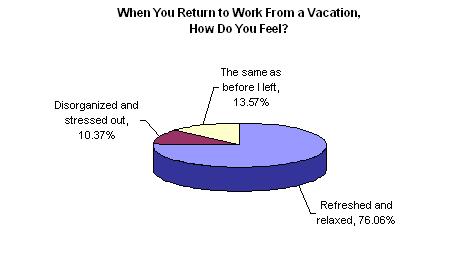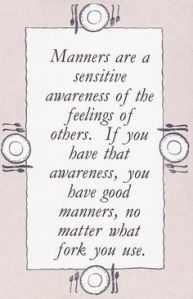Check the statistics below and ask yourself, how do you feel after vacations?

The challenge for most people is to maintain their post-vacations refreshed glow after the vacations are over. Coming back to work after holidays is a great opportunity to increase job performance. There are some tips that can help us keep this glow and become more productive:
- Scan your calendar for the next couple of days to get an idea of upcoming events.
- Don’t read your emails in chronological order. Sort them by subject or sender so that you can erase what is not longer relevant.
- Prioritize your work and make sure your colleagues/team know what your priorities are.
- Cut obvious distractions.
- Coordinate challenging tasks with the times you are likely to be at your best.
- Rethink unnecessary meetings. Meetings should be for decision-making and discussion (Not to share information that can shared in any other way).
- Commit to making decisions. Always move forward.
- Learn to say “No” to the things that take away from your productivity.
Finally, you can try to decorate your office in a way that it speaks about your personal-professional brand. This is something really simple that causes a positive impact on you and others.
Online Resources:










